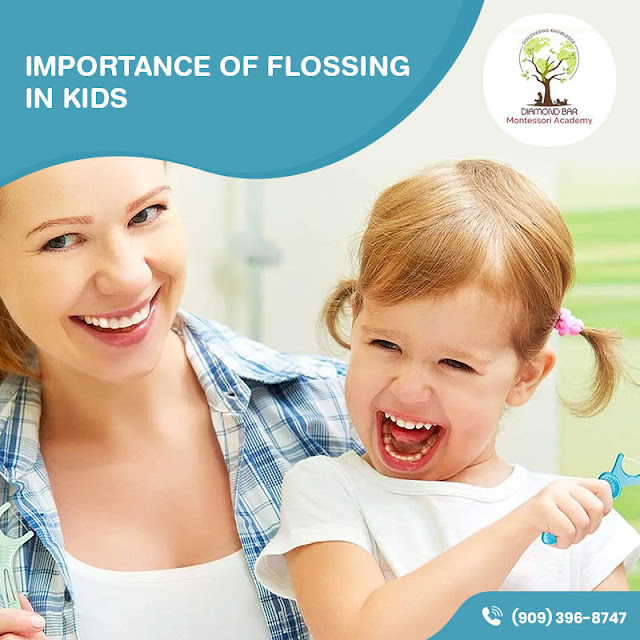Importance of flossing in kids
What Is Flossing?
Flossing is the process of cleaning between the teeth with a string-like instrument called dental floss. This procedure will aid in the removal of plaque and food particles that may have become caught between the teeth or in other areas where your toothbrush is unable to reach.
Why flossing is important for kids?
According to child care experts in Chino,CA, flossing is critical for children's dental health. Some people assume that flossing isn't necessary until the permanent teeth grow in since children's baby teeth will ultimately fall away. However, it is critical to keep your child's teeth and gums healthy, and flossing is an excellent way to do so.
Benefits of flossing.
1. Eliminates Plaque
Plaque is a colorless coating that adheres to the gums and teeth. When sugary or starch-filled foods and drinks are ingested and combined with bacteria in the mouth, it is created. Plaque contains acids that can cause serious damage to the enamel of the teeth. Brushing your teeth can help remove plaque from the main regions of your mouth, but flossing can assist remove plaque from tiny crevices that your toothbrush can't reach.
2. Aids in the elimination of foul breath
Food particles rotting between the teeth are a common source of bad breath. Plaque that forms around or between your teeth might also cause it. Gum disease and cavities will develop once your enamel begins to degrade. Each of them has also been linked to foul breath. Doctors in day care centers here in Chino, CA opine that by flossing every day, you can guarantee that all food particles are removed and that your teeth and gums remain healthy, resulting in a healthier breath.
3. Aids in Gum Disease Prevention
Maintaining good dental health necessitates keeping the gums healthy. Gingivitis is the early stage of the illness, characterized by inflammation around the gums. It can progress to Periodontitis, which results in loose teeth and irritation. Flossing and brushing twice a day can significantly minimize the risk.
4. Reduces the Chances of Cavities
Cavities are little holes or openings that develop on the enamel's surface. This does not happen overnight, but plaque build-up raises the chances of it happening. Flossing once a day helps to remove minute food particles and plaque from the teeth, reducing the risk of cavities.
Young children are unable to floss on their own, but after two teeth have grown close together, it is appropriate to start flossing. Until they are old enough to floss their teeth, you will have to do it for them. However, you should not leave your child alone when flossing until they are mature enough to manage the floss and are not interested enough to ingest or misuse it.



Comments
Post a Comment